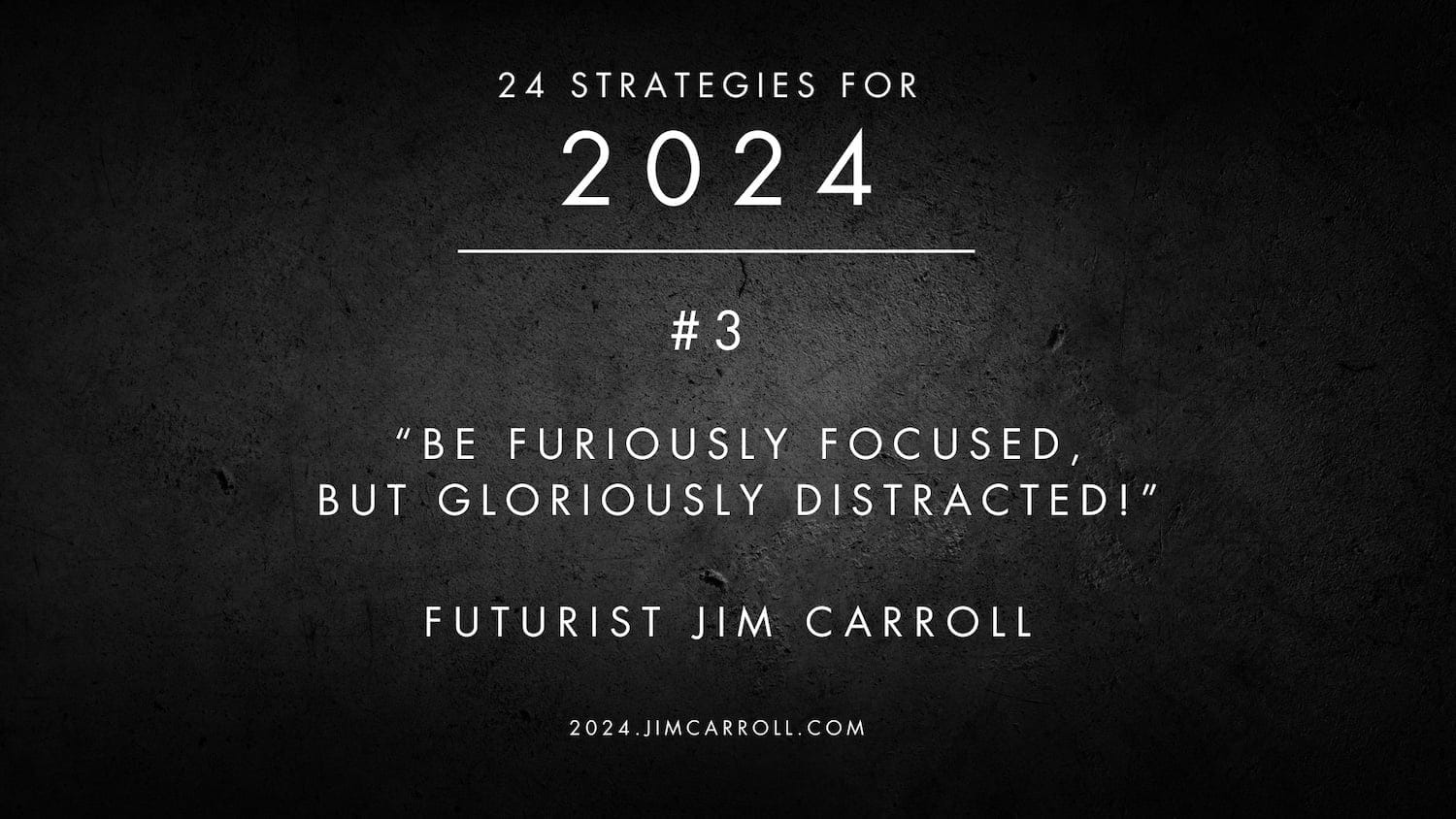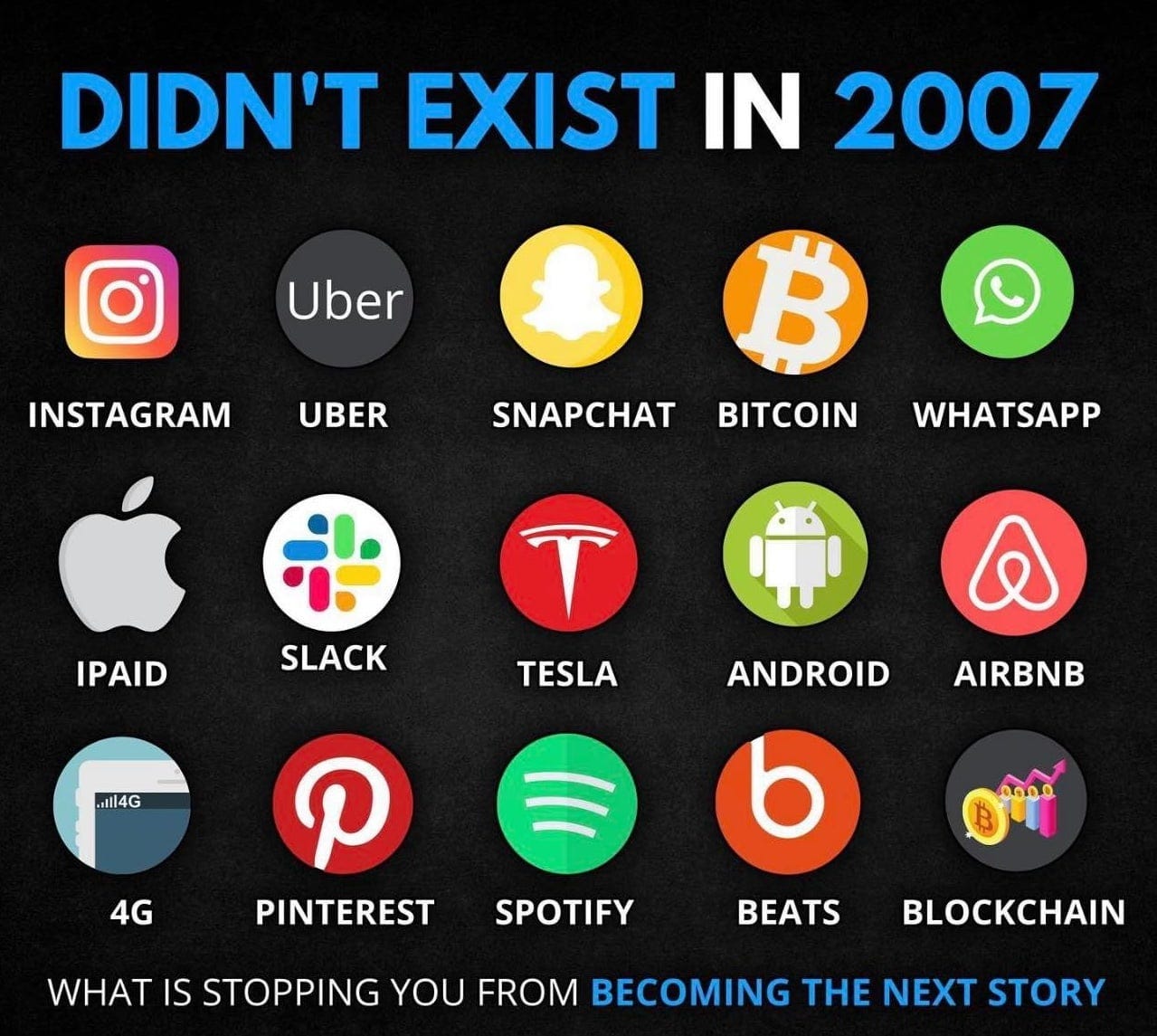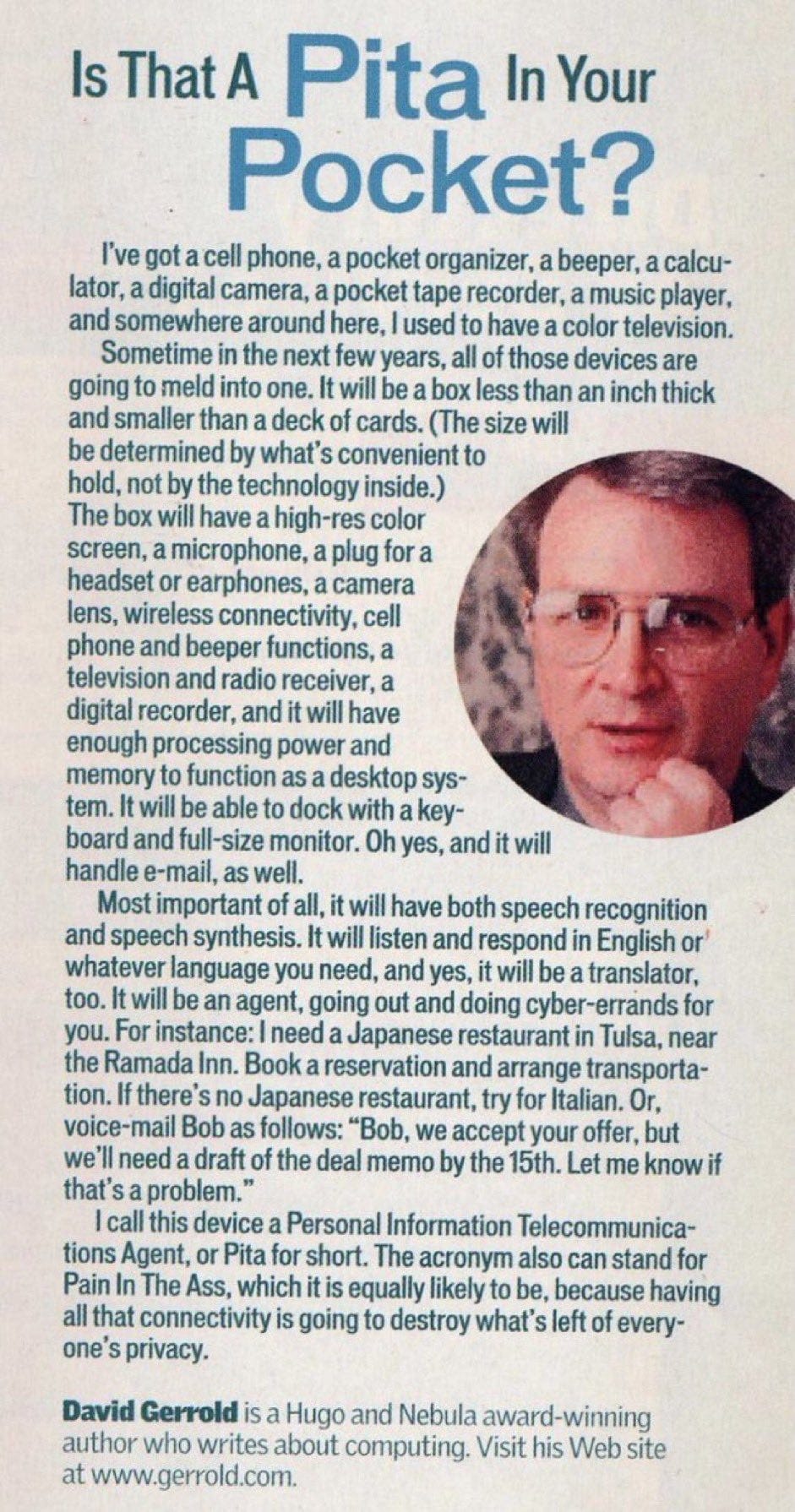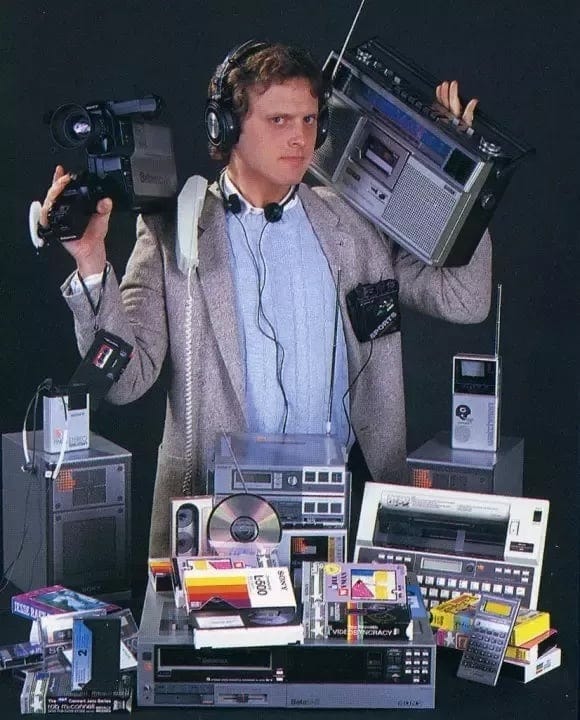Futurist Jim Carroll is running a series that began November 27, 2023, and will end on January 1, 2024 - '24 Strategies for 2024.' Rather than running a trend series for the upcoming year as he has previously, this series will examine a number of his personal beliefs on how to best align yourself with the future. There will be a post each weekday, excluding weekends and holidays, until the series runs its course. You will find it on his blog at
https://blog.jimcarroll.com,
or on the website
https://2024.jimcarroll.com
There's a lot of new stuff. You should try to be as involved with as much of it as you can. Be the dog from the movie Up!

That's why strategy #3 of my "24 Strategies for 2024" is to be focused but distracted!
That's why strategy #3 of my "24 Strategies for 2024" is to be focused but distracted!

What? Think of it this way - do what you need to do in your 'day job,' but keep busy at your 'future job!' Spend time in your current life, but actively explore your future life! The basis for this thinking is that there is going to be more new stuff, coming at us faster than ever before. Wouldn't it make a lot of sense to understand it faster?
Last year, I ran my series "23 Trends for 2023", and it continues to draw a lot of interest to this day. Statistics show me that the most heavily visited post is this one: #8 - Knowledge Velocity.
My opening comment in that post is prescient:
It used to be about what you know. Now it’s not only about what you know, but how fast you need to know it!
To recap, the post puts into perspective the rapid acceleration of knowledge. In 1900, human knowledge doubled approximately every 100 years; by the end of 1945, the rate had come down to every 25 years; by 1982, every 13 months; and today, with the arrival of the Internet and AI, some suggest it is now doubling every 12 hours. As I often say, I don't know about you, but to me...
Think about it another way. It’s taken the entirety of human history to reach the zettabyte era, and in less than 10 years we’re expecting that number to multiply by 175. (What's a zettabyte? A ridiculously big number. Look it up!)
That’s the velocity of information growth. Now keep in mind that the rapid growth of new knowledge leads to the arrival of a lot more new stuff.
You need to continuously explore that stuff.
What is that new stuff? Anything and everything:
- the continued arrival of new products and services that didn't previously exist
- new careers, new jobs, new skills
- new business models and concepts
- new methodologies by which people organizations can collaborate and share knowledge
- new ways of doing things
- new knowledge and creativity tools (hello AI!)
- new ways of tackling old problems.
Jon Erlichman, the tech, stocks & business history analyst on BNNBloomberg, takes delight in posting about "things that didn’t exist on Thanksgiving 20 years ago:"
An iPhone, Facebook, YouTube, Instagram, TikTok, Snapchat, Reddit, Gmail, WhatsApp, Bitcoin, Uber, Airbnb, Instacart, DoorDash, Netflix streaming, Amazon Prime, Google Maps, Tesla cars, iPads, Fitbits, Zoom, FaceTime and SpaceX Falcon 1.
Consider what wasn't around in 2007, but is now such a big part of so many lives.

What might yet be invented or brought to life that we can not yet imagine? When this fellow predicted the eventual all-in-one iPhone eight years previous to its release, he was subjected to a bit of ridicule.

In essence, the arrival of the iPhone meant that this fellow didn't have to carry around any of these devices anymore:

A few weeks ago, in a local community Facebook group, someone asked a simple question - did anyone have a 3d printer they could use to 'print' a broken leg for a Christmas tree stand?

Such a question might have been imaginable 10 years ago - except to those aware of the revolution that was coming with 3d printing technology. Today, this type of thing is routine. (They didn't find a solution and ended up having to buy a new base. I do know someone suggested the local library, but that 3d printer was booked up till mid-January! But the fact that the question was asked tells me where we are today.)
Remember all that drama at OpenAI a few weeks ago? Some folks think that it might be related to this moment. from a few days prior:

That's Sam Altman, announcing the arrival of custom GPTs and plans for a new GPT store. What's that? Basically, are about to see the arrival of a massive flood of new AI-based apps, doing specific things on specific subjects and specific knowledge that we might not yet even be able to imagine.
Imagine living without Google Maps or the other tools that are now a part of our lives - and now to think about what might still come with such new tools. As I stated to an audience in Hawaii a few weeks ago, just a few years from now, we will be walking around with new 'AI apps' on our phones, in our cars, and in everyday devices, that will seem indispensable, and yet are unimaginable at this very moment in time.
Tomorrow's inconceivable idea is being invented right now. I know I repeat this phrase a lot, but it bears repeating again:
Companies that do not yet exist will build products not yet conceived using materials not yet invented, with methodologies not yet in existence, based on ideas and innovations yet to be pursued, with knowledge that has not yet been generated.
So back to my strategy for 2024. Immerse yourself in tomorrow - find the tools - understand what's happening - explore more! It is your job to get involved with those things as soon as you can. Test them, work with them, play with them, think about them.
They will probably be a part of your life and career tomorrow. Wouldn't it make sense to understand them sooner?
Futurist Jim Carroll lives a life of glorious distraction, much to the chagrin of his very patient wife.

